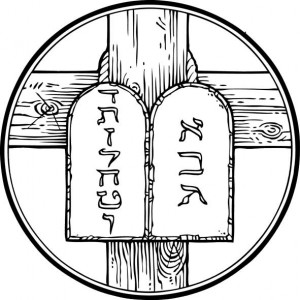As there has been for literally millennia, there has been a lot of discussion lately in the blogosphere about law and gospel. I’m thinking of a recent post by Tullian Tchividjian:
http://thegospelcoalition.org/blogs/tullian/2012/03/23/law-and-gospel-part-1
Here’s a thought about how this works.
I am convinced, utterly convinced, that it is important that young adult men should not poop in their pants. I do not, however, have to remind my teenage sons that they ought not poop their pants. We do not even celebrate any more when they poop in the potty. They have moved on. Yet, the law still applies. One ought not poop their pants. They have freedom in this area, they are really no longer struggling with adherence to the law that one ought not poop their pants. It is effortless. I haven’t had to tell them not to poop their pants for over a decade now. They are fulfilling this principle of goodness, without having to be under any kind of threat of punishment for it. They not only want to comply, they do comply, and they don’t even consider the matter any more. There is no longer an obligation for them to stop pooping in their pants because they simply do not poop their pants at all. It is a dead issue, long gone and long past.
When they were newborns, there was abundant grace in the sense that everyone expected them to poop in their pants, and provision was made for this … ahem … outcome. They were not scolded, they were nurtured and loved and cooed over. There came a brief time when they were considered of age, and they were trained to poop in the potty. They resisted, they had accidents, people were frustrated, demands were made, boundaries were drawn, rewards were given. This whole time was considered transitional. Even when they were young, the whole point was to get them beyond the obligation of this issue, to get them to the point where they were naturally pooping in the potty as a matter of habit without having to be told at all. This was the assumed direction of things. The boundary of this particular law is still true, but they have achieved complete freedom and 100% persistent compliance in this area. They may now produce the occasional tread mark, but they always poop in the potty without question.
In 10,000 years, when we are in whatever glorious heaven in whatever glorious community of beings in whatever glorious body that we will be in, the law will still be true. It will be true, that we ought not covet. In that place, someone could come along and say, “Hey, remember, we ought not covet!” Everyone will turn and say, “Duh! Why would we covet? If we need ANYTHING, God can and will make it up to us in a great overwhelming abundance just for the asking.” The whole notion of deserving it will be wiped from us completely. If someone says, “we ought not commit adultery!” We will say, “No one has committed adultery in 10,000 years. We exist in relationship 1000 times more intimate than sex could provide with each other. We have moved on. We are busy with communal worship and beautiful heavenly things.” In other words, we will no longer be motivated by or in need of the law, but we will be found to be fulfilling the law even though we have long forgotten it. In 10,000 years there will be no question of merit or sanctification in the sense most moralists and legalists mean.
The law can remain true, though we are “no longer under the law, but under grace (Romans 6:14)”. We are the first fruits of this life that is under grace. This 10,000 year future scenario is true now, we are already seated in the heavenly places in Christ (Eph 2:7). We are babies in grace, we still have poop issues, but the poop issues are greatly destined to fall away as we enter into maturity. However, this self which will persist into 10,000 years in the future is our true self, our eternal self, and it already operates on this principle. It fulfills the law and far beyond the demands of the law from love, by its very nature. To say this is not true, that our new self is not real, is to deny the relation we have to the resurrection. We really must give much closer attention to Romans 6 – 8.
To say that we are no longer under the law does not make us antinomian, it means that we greatly supersede the demands of the law because we act only from love and only from the fullness of desire, from the heart, to serve one another, from joy. We are like the Macedonian church, who because grace, gave far beyond what the law would demand (2 Corinthians 8:1-7). Because we are loved, because we love, because of grace, we live way beyond the demands of the law. Now we are weak and barely functioning babes in the ways of grace and freedom, and we have the questions of children about it, but we are meant to grow into a mature and seasoned freedom where we by instinct and nature put away childish things and walk in love. This is the aim of grace.

